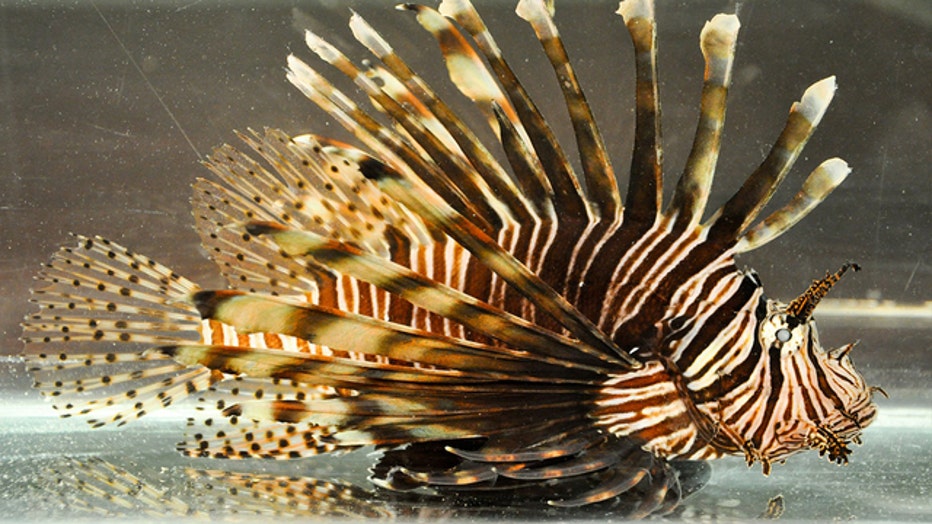Over 25,000 invasive lionfish removed from Florida's waters during three-month state challenge
Lionfish winners: Paul DeCuir in the commercial division (left) and Isaac Jones in the recreational division (right).
TAMPA, Fla. - In three months, nearly 200 divers searched and removed thousands of lionfish from Florida's waters – 25,299 to be exact.
It was all part of the seventh annual Lionfish Challenge. A total of 196 divers made 676 trips, bringing in the highest number of lionfish since 2018.
The Lionfish Challenge is an FWC program that calls for divers to kill lionfish, which are an invasive species that threatens to displace native fish. The critters are covered with venomous spines that can cause painful stings, so harvesting tends to require a spear or sling, though nets are also permitted.
Last year, divers brought in a total of 21,146 lionfish. In 2020, 21,569 were removed; 23,451 in 2019; and 28,260 were caught in 2018.

Photo: Amanda Nalley/Florida Fish and Wildlife Conservation and Commission
WATCH: Mako shark jumps onto fishing boat in Maine
The lionfish are native to the Red Sea and the Indo-Pacific, but can be found year-round off the coast of Florida and the Carolinas. It’s unknown how they reached the Atlantic Ocean, but it’s possible people have been dumping unwanted lionfish from home aquariums for about 25 years, according to the National Oceanic and Atmospheric Administration.
Since they are not native, they don’t have many predators. They are covered in venomous spines. According to FWC, lionfish are known to prey on more than 70 marine fish and invertebrate species, including yellowtail snapper, Nassau grouper, parrotfish, and banded coral shrimp. They also compete for food with native predatory fish such as grouper and snapper, which are vital to the commercial fishing business.

